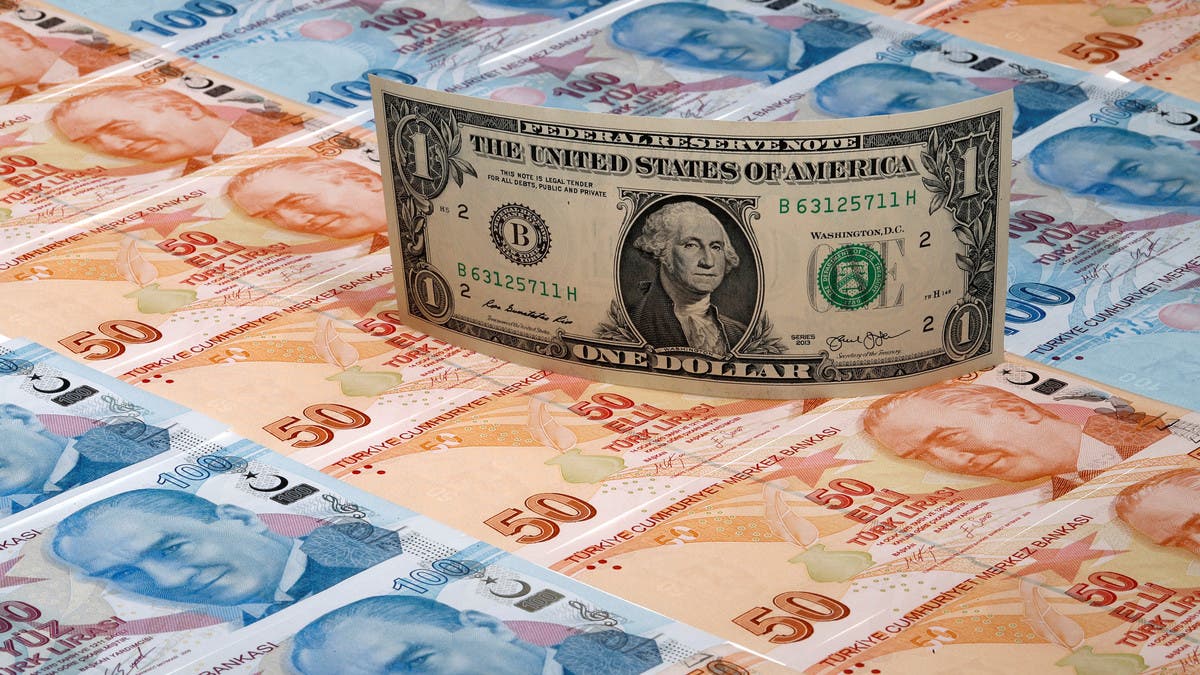The lira slid as much as 4 percent against the dollar on Tuesday as Turkey girded for inflation to rise further after touching a 19-year peak.
Finance Minister Nureddin Nebati said he expected a return to stability after a volatile currency crash in recent months.
For the latest headlines, follow our Google News channel online or via the app.
The lira, however, weakened as far as 13.5 to the dollar from a close of 12.96 on Monday, and stood at 13.295 by 0946 GMT, as economists forecast consumer prices would continue to rise after data on Monday showed Turkey’s annual inflation rate surged to 36.1 percent last month.
The lira hit a record low 18.4 two weeks ago before rebounding following the government’s steps to support the currency.
Last year, the lira weakened 44 percent, making it by far the worst performer in emerging markets and marking its worst year since President Tayyip Erdogan came to power nearly two decades ago.
His “new economic program” of sharp interest rate cuts and an emphasis on exports and credit set off the currency crisis, Turkey’s second in four years.
“We expect a stable exchange rate trend to be established over time,” Treasury and Finance Minister Nebati, whom Erdogan appointed last month, told state-owned Anadolu agency on Tuesday.
The central bank has cut its policy rate by 500 basis points to 14 percent since September, under pressure from Erdogan who overhauled the bank’s leadership last year.
Many economists call the monetary easing reckless given the surge in consumer prices to 36.08% year-on-year in December, which was much higher than forecast and driven by the lira weakness and transport and food prices.
Inflation should continue rising in coming months in part due to a series of administered price rises including minimum wage, utilities, road tolls and alcohol and tobacco taxes.
“The December inflation spike was largely driven by the FX passthrough and imported energy costs,” said Hakan Kara, a Bilkent University professor and former chief economist at Turkey’s central bank.
“The authorities may implement some price controls and deploy additional tools to prop up FX depreciation. But it is not clear how these measures will alleviate the demand channel,” he said, predicting inflation may exceed 40 percent by March.
Kara said overall January inflation should rise by 5 percentage points due to the direct and indirect contributions from the administered price hikes.
Speaking after a cabinet meeting on Monday, Erdogan said he was saddened by the inflation data and that his government was determined to lower it to single digits, blaming the climb on global commodity prices and a weaker lira.
To curb the lira weakness, Erdogan unveiled a scheme two weeks ago in which the state protects converted local deposits from losses versus hard currencies.
Deposits in the forex-protected scheme had reached 84 billion lira ($6.4 billion), Nebati was reported as telling Anadolu on Tuesday.
“By developing instruments like the new fx-protected deposit accounts and increasing the lira’s attractiveness, we will lower inflation,” he said, adding that once stability is achieved, Ankara would boost production and exports.
Nebati said work would be conducted on drawing gold kept at home into the financial system, while the state’s contribution to the private pensions’ system will be raise to 30 percent from 25 percent.
Corporate tax will be made more competitive and value-added tax will be simplified among various planned measures, he added.
Read more: Turkey’s lira mounts big comeback after Erdogan unveils anti-dollarization measures


 World3 years ago
World3 years ago
 World3 years ago
World3 years ago
 Business1 year ago
Business1 year ago
 Entertainment8 years ago
Entertainment8 years ago
 World8 years ago
World8 years ago
 Entertainment8 years ago
Entertainment8 years ago




